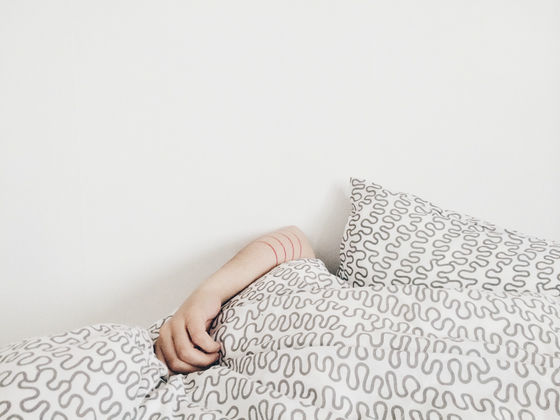How to invite deep sleep using sound and increase memory

byCris Saur
"A gentle sound like the sound of a flowing waterfall that synchronizes with the rhythm of an electroencephalogram, helps elderly get into a deep sleep and helps to increase memory, is revealed in a new study.
Frontiers | Acoustic Enhancement of Sleep Slow Oscillations and Concomitant Memory Improvement in Older Adults | Frontiers in Human Neuroscience
https://www.frontiersin.org/articles/10.3389/fnhum.2017.00109/full
This noise could deepen sleep and boost memory
https://knowridge.com/2018/01/this-noise-could-deepen-sleep-and-boost-memory/
There are two states of sleep: "REM sleep" and "non-REM sleep", and "REM sleep" is often expressed as "shallow sleep" and "non-REM sleep" is expressed as "deep sleep". This "non-REM sleep" is thought that the brain is completely sleeping and plays an important role in establishing memory. However, when it comes to middle-aged and older age, this non-REM sleeping time is decreasing, and it is said that this "decrease in non-REM sleeping time" caused by scientists is causing memory deterioration due to aging.
Research results showing an effective method to prevent such "non-REM sleep time reduction"Frontiers in Human NeurosciencePublished on above. Research was conducted at Northwestern UniversityCognitive Neurology and Alzheimer's Disease CenterWe are deducting a method by asking 13 subjects over the age of 60 and asking them to go to bed while listening to "sound stimulation" and "fake stimulation" all night.

byelizabeth lies
"False stimulus" used in this experiment sounds the same sound as "stimulation by sound", but makes no sounds occur during subject's sleep. By comparing the difference with "sound stimulation" that keeps running while sleeping, it is used to investigate how the sounds heard while sleeping affect the human body. In addition, when subjects participate in experiments of "sound stimulation" and "fake stimulation", they are asked to take a test about memory two times before going to bed and after waking up.
In addition, in the experiment, reading the subject's brain waves in real time enables you to listen to the sounds and brain waves that you listen during sleepPhase synchronization circuitIt seems that we let the subject listen to it after synchronizing it like. In addition, because the timing of each firing of a neuron that occurs when a human is in a deep sleep is different in timing, the sound to be heard during sleep needs to be tuned for each subject.
As a result of experiments, when listening to "fake stimulus", only a few percent improvement was seen in the memory test before sleeping and after waking up, whereas "stimulation by sound"Pink noiseWhen I continued to listen to it, I found that the score of the test I got since waking up was three times higher on average, clearly demonstrating its effect on memory consolidation.
Pink noise is the following noise sound. It was said that these kinds of noise were synchronized with the brain waves at sleep and let the subject listen.
Pink noise for aging 30 minutes - YouTube
When the brain wave of the subject was detected during this experiment, the subject who listened to pink noise when sleeping obviously knows that the signal from the brain is less and it is in a deep sleep . This is because low frequency of emerging brain waves in non-REM sleep "Slow wave sleepAlthough it is long, it can be said that it is a result suggesting that memory improvement is occurring among subjects. In other words, for elderly people it is speculated that the length of slow wave sleep is playing an important role in maintaining memory, and pink noise synchronized with brain waves is effective for lengthening slow wave sleep It is clear from the experiment that it is.
Although researchers at Northwestern University have not yet researched about the influence of keeping listening to "sound stimulation" every night, they said, "There is a possibility that it can be a method that can be implemented over the long term at home" It is.
Related Posts:







